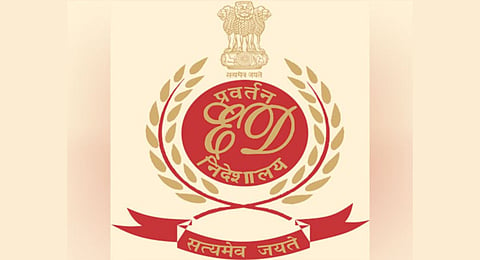

NEW DELHI: The 13 year-old, 2010 Commonwealth Games (CWG) corruption case has come to a close as a Delhi Court officially accepted the Enforcement Directorate’s (ED) decision to end its investigation into alleged money laundering linked to the event.
The case initially gained attention due to allegations against Suresh Kalmadi, the former Chairman of the CWG Organising Committee and Lalit Bhanot, the former Secretary General, along with other persons.
Special judge Sanjeev Aggarwal of the Rouse Avenue Court pointed out that the Central Bureau of Investigation (CBI) had already closed the related corruption case, which had led the ED to begin its money laundering investigation.
The ED’s report also named several key figures, including Vijay Kumar Gautam, the then COO of the CWG Organizing Committee, A K Matto, the treasurer, as well as the company Event Knowledge Service (EKS) and its CEO, Craig Gordon MeLatchey.
The allegations revolved around financial misconduct in awarding two major contracts for the Games, which were said to have led to illegal profits for certain parties while causing losses to the Organising Committee. Judge Aggarwal, in accepting the ED’s closure report, explained that no crime related to money laundering under Section 3 of the Prevention of Money Laundering Act (PMLA) could be established due to the lack of criminal proceeds.
The investigation also found no evidence of any offence under Section 2(1)(y) of the PMLA, which defines scheduled offences. The evidence gathered showed that no act of money laundering had occurred as per the PMLA’s stipulations.
Despite extensive investigations by the ED, the prosecution was unable to provide proof of any offence under Section 3 of the PMLA, which carries penalties under Section 4 of the same law. As a result, the court accepted the ED’s closure report and concluded that the investigation could go no further.
In 2016, a special court had accepted the CBI’s closure report in a related corruption case. This case involved officials from the Central Public Works Department (CPWD), Delhi Development Authority (DDA), and a private company, among others.
The CBI found that its investigation had not uncovered enough evidence to support the allegations against the individuals named. The CBI had concluded in 2014 that no incriminating evidence was found and the allegations could not be proven. With both the ED and CBI failing to substantiate the claims, the case has now ended.
PFI leader OMA Salam gets custody parole
The Delhi High Court on Monday granted custody parole to OMA Salam, the former chairman of the now-banned Popular Front of India (PFI), so that he could travel to his hometown in Kerala to perform religious and family rites after the death of his daughter, a medical student.
Justice Ravinder Dudeja considered the arguments put forward and allowed Salam three days of custody parole, giving him six hours of supervised release each day. The National Investigation Agency (NIA) opposed a longer parole period, raising concerns that Salam’s high standing within PFI could put pressure on state resources.